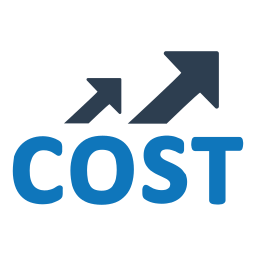
Starting a small business in New York, NY: Setting up your own business gives you enough sky to spread your wings of dreams and independence. At the same time, it tags along a tedious set of works. Starting your small business in New York, NY is a mix of both, difficult and satisfactory. In general, New York is one of the most desirable states when it comes to setting up a small business. Hence, the guidelines and business regulations are more-or-less favorable for emerging entrepreneurs in New York.
In this article, we tried to cover important statistical data that helps you understand the demographic and economic condition of New York. With a population of 18908608 the city is a desirable place for your small business. Besides, the average household income of citizens in New York is $76607 which is also desirable to get potential customers for your small business. However, there are a lot of other factors associated with establishing your business in New York or anywhere in New York.
As you start establishing a small business in New York, our guidance on business formation aims to present deeper insights into best practices and mandatory requirements. With unwavering commitment and diligence, you will be well-positioned to enjoy the rewards and face the challenges of running your own small business. The Webinarcare team has outlined the following steps to assist you in initiating your small business in New York.
On this page, you’ll learn about the following:
Evaluate the Business Idea in New York, NY
While you get excited to form your own small business in New York in the state New York, you must know of some homework to be done prior to that. Before you dive into forming your business, let’s get into evaluating business ideas. To guide you through this evaluation, here is a list of important factors to look at:

- Market demand: Determine if there’s a sufficient need for your product or service in New York or in the state New York. Conduct market research to evaluate your target audience and potential competitors around your area of operation. For New York, with urban population 18908608 and average individual income $39551, it is helpful to detect your potential buyer.
- Unique selling proposition (USP): As you contemplate your business idea, consider what sets it apart from others in the market. Your USP should address an unmet need that will attract customers and distinguish you from competitors. For example, recent data shows, the average age group in New York is 37.5. Hence, you know what type of product/service you should opt to gain more buyers on your side.
- Feasibility and scalability: Evaluate whether your idea is practical and achievable within the context of New York. Apart from resources available, market access, and potential entry barriers, consider factors such as market trends for the long-term growth of your business.
- Costs and funding: For the cost and funding, you need to calculate rent (individual households pay an average rent of 1714 in New York), an amount of tax to be paid [income tax in New York: can range from 4% – 8.82% (depending on income)], equipment, wages, and other miscellaneous expenses. Once you know the cost, you can decide on the source of funding.
- SWOT analysis: Perform a Strengths, Weaknesses, Opportunities, and Threats analysis for your business idea. For example, New York has 32.9% home ownership. If you start a real estate business, you can easily find opportunities using this number. On the other side, 13.9% of the total population have issues speaking English in New York. It might be risky to start an English tutoring service, however, if there is no other close competition, it might be the strength of your business.
As soon as you address these factors, it will be easier for you to move forward. Afterward, you must know about the necessary licenses and permits in New York, arranging business loans (Read: Best small business loans in New York), getting small business insurance to protect your business (Read: Best small business insurance in New York), and other factors to grow your business in New York, NY.
Business Structure for Small Business in New York, NY
Before starting a business in New York, you must decide its legal structure. Each business structure has its advantages and disadvantages. Here is a list of business structures that can be formed for your small business in New York in New York. It is recommended to check important factors of these structures before making a decision.
- Forming an LLC in New York
- Start an S-Corp in New York
- Start a Corporation in New York
- Professional Corporation in New York
Apart from that, it is necessary to look deeper into the type of business that runs well in New York. There are a bunch of businesses in New York you can set up in New York. However, this list is a generic list based on the New York’s economic and business atmosphere. Some of the top profit-making businesses in New York are,
- Delivery services
- Merchandise Reseller
- Mobile business
- Trucking Business
- Daycare Center
If you want to start something already on the top business list, ensure you are well-prepared with your business strategy and plan. If you are in Albany, the capital city of New York, you might get more potential buyers for these businesses.
New York: Demographic and Economic Overview
Education and Labour Force Stats in New York (%)
| Less than high school (%) | 16.7% |
| Highschool (%) | 23.3% |
| College (%) | 19.8% |
| Graduate (%) | 17% |
| Bachelor (%) | 23.2% |
| Stem Degree (%) | 43.9% |
| College or Above (%) | 40.2% |
| Labour Force Participation (%) | 63.2% |
| Unemployment Rate (%) | 7.6% |
Also Read: Start a Small Business in Miami, FL
Income Stats in New York
| Family Dual Income | 53.1 |
| Household Average Income | 76607 |
| Individual Average Income | 39551 |
| Household Income $150k+ | 24.6 |
| Household Income $100k-150k | 15.3 |
| Household Income $75k-100k | 10.8 |
| Household Income $50k-75k | 13.5 |
Population and Age Overview in New York (%)
| City Name | New York |
| State Name | New York |
| State ID | NY |
| State Capital | Albany |
| City Population | 8622467 |
| Population Density | 11080.3 |
| County Names | Queens|Kings|Richmond|Bronx|New York |
| % of Male Population | 48.1% |
| % of Female Population | 51.9% |
| % of People in their 20s | 14.7% |
| % of People in their 30s | 15.9% |
| % of People in their 40s | 12.7% |
| % of People in their 50s | 12.6% |
| % of People in their 60s | 10.7% |
| % of People in their 80s | 3.9% |
| Average Individual Income | 39551 |
| % of People owned own home | 32.9% |
| Labour Force Participation | 63.2 |
| Unemployment Rate | 7.6 |
| Poverty Rate | 17.2% |
How to Start a Small Business in New York
We shared a step-by-step guide below on how you can put a foot forward to setting up your small business in New York. The following steps are required to follow to set up your business. However, these are general steps applicable to all business setup types. Depending on your business type, the steps can be changed.
Step 1: Decide on a Legal Structure

Kickstarting your business in New York demands a pivotal decision: selecting an appropriate legal structure. This choice profoundly shapes your taxation, liability, and overall business operations. In this segment, we’ll delve into various legal frameworks, equipping you with insights to make a well-informed choice.
There are four common legal structures for businesses: Sole Proprietorships, Partnerships, Limited Liability Companies (LLCs), and Corporations. Here, we’ll briefly explore each one:
- Sole Proprietorship: The most straightforward business model, where you, the entrepreneur, wield full control. However, this control comes with complete responsibility for all financial obligations and potential liabilities. This structure suits solo ventures with minimal risks or those contemplating a more formal setup later.
- Partnership: Suitable for ventures with multiple stakeholders, partnerships can manifest as General, Limited, or Limited Liability Partnerships. Each carries unique tax consequences and liability clauses.
- Limited Liability Company (LLC): LLCs are popular among small business owners as they offer limited liability protection and tax flexibility. LLC formation is simple, making it a preferred option for many entrepreneurs. To get an idea of how to form an LLC, check out “New York LLC Formation Guide” on our website.
- Corporation: A corporation is a separate legal entity owned by the shareholders, providing them with limited liability. Forming a Corporation in New York can be either C-Corps or S-Corps, each with different tax implications. Forming a corporation is generally more complex and expensive than starting an LLC.
To make the right decision on your business structure, ask yourself these questions:
- How much personal liability protection do you need?
- What tax structure is most favorable for your business?
- How important are flexibility and ease of management?
- Are you planning to seek external funding?
Consider working with a professional business formation expert or attorney to help you understand the pros and cons of each legal structure and the specific requirements in New York. Remember that there are additional steps to take after choosing your legal structure, like obtaining necessary permits, licenses, and insurance.
So, whether you’re forming an LLC or deciding to start a business as a sole proprietor, this crucial decision will lay the foundation for your success in New York. Take your time to research and consult with professionals to ensure you’re making the best choice for your unique business needs. Now that you better understand the legal structures available, you’re one step closer to fulfilling your dream of starting a business in New York.
Step 2: Register Your Small Business in New York
When you’re ready to start a small business in New York, you must go through the proper steps to ensure you’re legally protected. This section will walk you through the process of forming an LLC, as this is a popular and straightforward business structure for many entrepreneurs. Let’s begin with the business formation steps in New York.
2a. Choose a Business Name

To form a small business in New York, decide on a unique and easily identifiable business name. Remember, any other business entity must not use your chosen name in New York. Make sure to include an appropriate designator, such as “LLC” or “LLP,” “Inc.” and such in the name. If you’re not forming your company immediately but want to reserve your desired name, you can file DBA in New York.
2b. Hire New York Resident Agent

Every New York-based business requires a registered agent — an individual or entity designated to receive legal and official documents on your company’s behalf. This agent should have legal authorization to operate in the state and a physical address within New York. They should be at least 18 years of age. You can be your own registered agent, but it is strongly recommended to appoint a professional agent for your business in New York, NY. You can check the list of best registered agents in New York, compare their prices, and their services in this list.
In New York, the agent is generally known as Resident Agent. Keeping the designation same, in different states have different names of a Registered Agent.

2c. File your Incorporation Documents
Filing the incorporation document of your business is the official step to registering your business with the state. This paperwork should encompass details like your business name, address, objective, and names of the LLC members. After filling out the required form, submit it and the necessary fee to the appropriate state business registration authority. If you want to start an LLC, you must file New York Articles of Organization, and if you’re filing a corporation, file New York Certificate of Incorporation with New York Secretary of State. You don’t need a formal registration for the sole proprietorship business in New York.
In New York, if you form an LLC, the filing fee will be $200 (by mail and $208 online). On the other side, filing a corporation costs $125 for filing online, or by mail in New York. There might be other costs like local authority taxes etc. Check with the local city offices to know more.
2d. Draft an LLC Operating Agreement

Although not required by every state (except for California, Delaware, Maine, Missouri, and New York), having an LLC Operating Agreement in New York is highly recommended. This document outlines the rights and responsibilities of LLC members, as well as management and profit-sharing arrangements. By having a clear LLC Operating Agreement, you can avoid potential disputes and misunderstandings among members down the road.
Step 3: Obtain an EIN (Employer Identification Number)

An EIN, or Employer Identification Number in New York, is a tax identification number issued by the IRS to businesses. This number is needed for tax reporting purposes, opening business bank accounts, and hiring employees. You can request an EIN directly from the IRS, free of charge.
Step 4: Register for State and Local Taxes
Depending on your LLC’s location and operations in New York, you may need to register for various state and local taxes. These can include sales tax, payroll tax, and business licensing fees. Consult with a local tax professional or research online resources to determine your tax obligations.
Following these steps will help you form your LLC and start your business on the right legal footing. Keep in mind that forming a business may involve additional steps depending on the specific requirements of New York and your industry. Always be thorough in your research and consult with professionals when necessary.
Step 5: Obtaining Licenses and Permits
Starting a small business in New York is an exciting venture, but ensuring you have all the necessary licenses and permits. When you form an LLC or any other type of business, obtaining these legal documents can help you stay compliant and avoid potential hassles in the future. We’ll outline the steps to secure licenses and permits for your new business.

First, you’ll need to research the specific licenses, permits, and regulations relevant to your industry in New York. These requirements can vary greatly, so being familiar with those relevant to your business is important. Some industries may require federal and state licenses, while others only need local permits. You can find state and local requirements information by checking with the New York government’s website or office for local details.
- Research Industry-Specific Regulations: The licensing landscape in New York can differ vastly across industries. Familiarize yourself with the mandates pertinent to your domain. Some sectors might entail both federal and state licenses, while others might be confined to local permits. The New York government’s website serves as a reliable resource for local regulations.
- Application Process:
- For federal licenses, consult the U.S. Small Business Administration’s guide to identifying your industry’s overseeing authority.
- State-level licenses can be explored through the SBA’s state business license lookup tool.
- Local licenses can be pursued via the official New York government website, which provides essential forms and directives.
- License Maintenance: After procurement, maintaining your licenses is crucial. Many licenses come with expiry dates or stipulate periodic renewals. Be vigilant about these timelines to sidestep potential fines or punitive measures, and be proactive with renewals.
Next, you need to apply for all the necessary documents:
- If your business must obtain federal licenses or permits, head to the U.S. Small Business Administration federal licenses and permits guide to find the relevant authority for your industry.
- You can use the SBA’s state business license lookup tool for state-specific licenses and permits to identify the appropriate agencies to contact.
- To apply for local licenses, visit the New York government’s official website or office and access the necessary forms and instructions.
After gathering all the necessary permits and licenses, staying up-to-date is essential. Licenses and permits may have expiration dates or require periodic renewals. Keep track of these deadlines to avoid potential fines or penalties, and always be prepared to renew when needed.
In New York, obtaining licenses and permits can help your small business stay compliant and set you up for success. By following these guidelines, you can ensure a smooth process from LLC formation to business growth. Good luck in your entrepreneurial journey!
New York Statistics and Other Factors
| Married People | 39.8% |
| Divorced | 10.9% |
| Never Married (Single) | 44% |
| Widow | 5.3% |
| Overall Family Size (average) | 3.33% |
| Race (White) | 37.5% |
| Race (Black) | 23.1% |
| Race (Native) | 0.6% |
| Race (Pacific) | 0.1% |
| Race (Asian) | 14.5% |
| Race (Other) | 15.4% |
| Hispanic | 29% |
| People with disability | 11.3% |
| People without Health Insurance | 6.7% |
| Veteran in New York | 2% |
Financial Set Up of Your Business in New York
When forming your small business in New York, you must give equal importance to setting up the financial structure. In this section, we’ll walk you through the steps and considerations needed as you establish the financial backbone of your new venture.
1. Open a Business Bank Account:

Separating personal and business finances is crucial for legal protection and accurate bookkeeping. Opening a business bank account in New York simplifies the process of tracking income, expenses, and tax responsibilities. Shop around for a bank in New York that offers the features and services that align with the needs of your specific business. Explore the best banks for small businesses in New York.
2. Arrange Business Loans and Grants in New York, NY
Before you start your small business, make sure to plan your finances. It is wise to get loans or grants from a trusted organization to start your business in New York. When it comes to getting bank loans, New York has several banks that provide the best business loans in New York. You can explore them to get the best one for your business. On the other hand, there are the best small business grants in New York for your business.
3. Set up a Bookkeeping and Accounting System
Maintain financial health and ensure tax compliance in New York, New York by establishing a robust bookkeeping system. While many modern software options can aid in this process, hiring a professional bookkeeper or accountant can provide further insight and accuracy.
Incorporating these steps into your plan will help you start a small business in New York, NY with a solid financial foundation. Remember that each business is unique, and it’s always a good idea to consult an LLC and business formation expert for tailored advice. Building a strong financial base will help ensure your venture in New York is set up for long-term success.
FAQs
Conclusion
Commencement of the entrepreneurial journey in New York, NY requires meticulous preparation and a clear understanding of the local business landscape. As we’ve detailed, a systematic approach ensures that your venture stands on solid ground right from the beginning.
While forming an LLC is a favored choice for many in New York due to its distinct advantages, like liability protection and tax benefits, it’s essential to grasp the nuances of its formation and local compliance requirements.
To recap, when starting a business in New York, remember to:
- Research your market and develop a solid business plan
- Decide on the appropriate business structure (e.g., LLC, sole proprietorship)
- Register your business with state and local agencies.
- Obtain necessary permits or licenses.
- Keep up with ongoing tax and legal responsibilities.
In New York, business formation encompasses various tasks that must be carried out meticulously to lay a solid foundation for your enterprise. Commit to learning how to start a business, form an LLC, and zoning in on the requirements specific to your New York location. By ticking these boxes, you’ll be well on your way to becoming a successful business owner.
